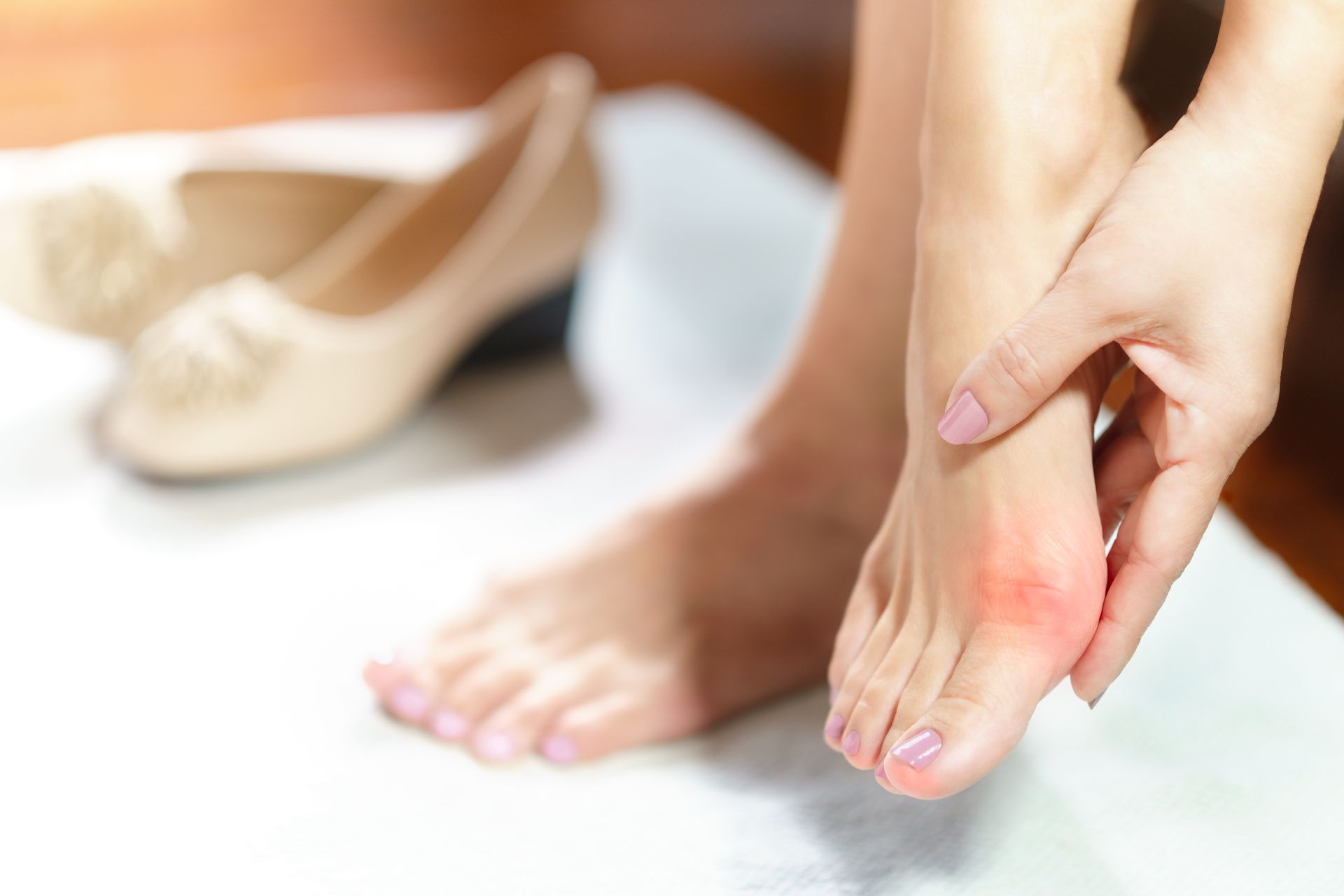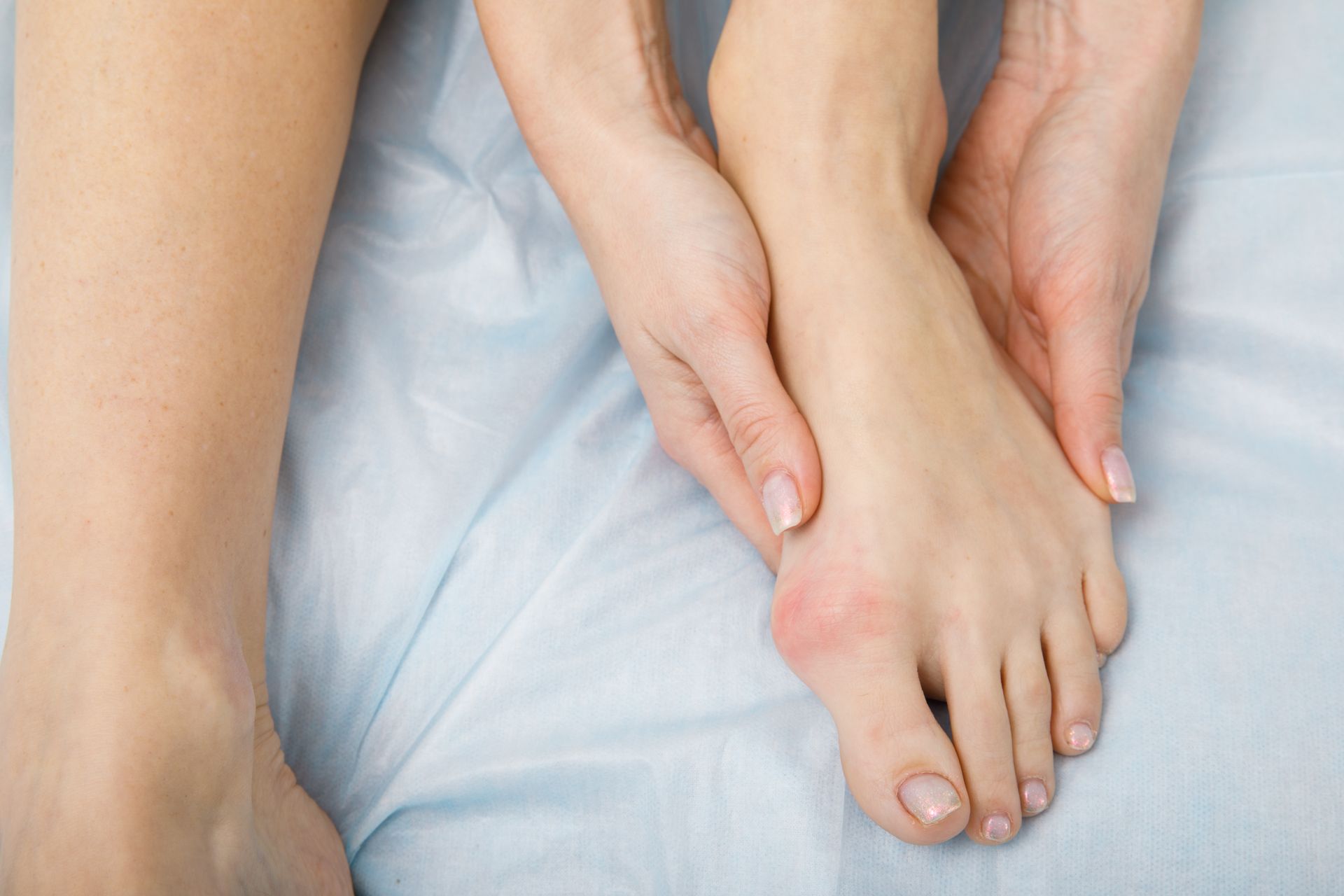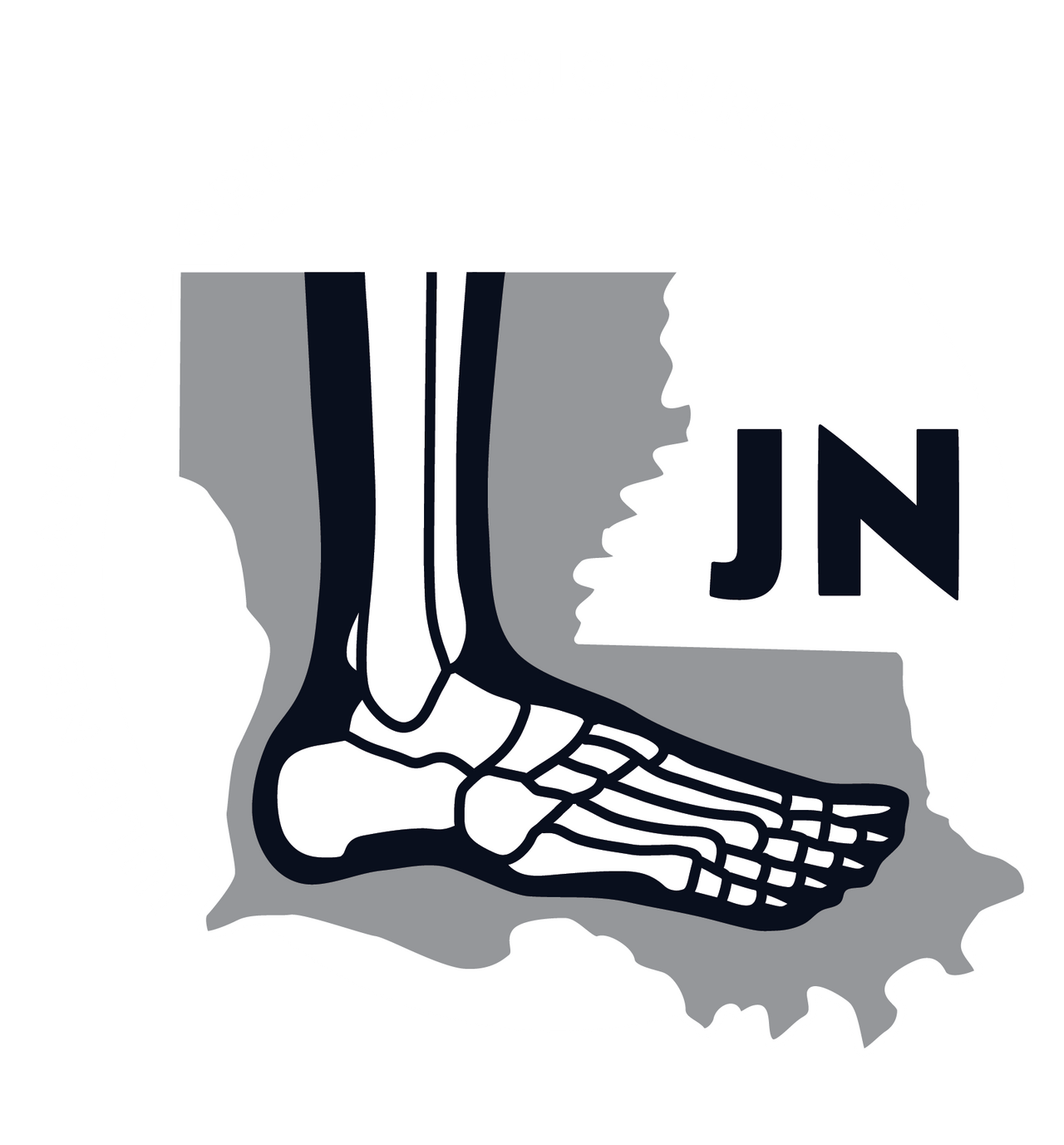Foot pain might seem like a normal part of a busy day, but when soreness or swelling develops around your big toe joint, it could be an early sign of a bunion. Bunions form gradually, and if you don’t address the early signs or take proper care of your feet, the condition can worsen over time and may eventually require surgical treatment.
As a
board-certified orthopedic surgeon fellowship-trained in both foot and ankle and sports medicine, Dr. Julie Neumann helps patients throughout the region identify early bunion changes and find effective, individualized solutions for relief.
What Causes Bunions to Develop?
A variety of factors can cause the bones in the front of the foot to shift out of alignment, leading the big toe to angle toward the second toe and form a bunion. Common causes include:
- Genetics: Inherited foot shapes, such as flat feet or unstable joints, can increase the likelihood of developing bunions.
- Footwear: Tight or high-heeled shoes crowd the toes and place extra pressure on the joint.
- Injury or overuse: Repetitive stress or long hours on your feet can lead to gradual joint changes, especially in athletes or active individuals.
- Arthritis: Joint inflammation can weaken supporting tissues, allowing the toe to shift over time.
Early Signs and Symptoms of a Bunion
Bunions often begin with subtle symptoms that are easy to overlook. Early signs include a small bump at the base of the big toe, tenderness or redness after walking or standing, and pressure or rubbing on the inside of the foot when wearing shoes. You may also notice mild stiffness or limited motion in the big toe or that it’s starting to lean inward toward the second toe.
Even if pain is minimal, these symptoms suggest that joint alignment is beginning to change and should be evaluated by Dr. Neumann.
When to See a Bunion Doctor in Baton Rouge
It’s best to schedule an evaluation before bunion pain becomes constant or interferes with your daily routine. If you’ve noticed a growing bump, recurring soreness, or swelling near your big toe joint, don’t wait for the pain to worsen. Scheduling an early evaluation allows our team to pinpoint the cause of your pain and create a plan that keeps you active and comfortable.
Treatment Options for Bunions
The right treatment depends on your symptoms and the severity of your bunion. Many patients find relief through non-surgical options, including:
- Shoe modifications to create more space for the toes and reduce irritation
- Padding or protective sleeves to minimize friction and discomfort inside shoes
- Custom orthotics to improve foot alignment and relieve pressure on the joint
- Physical therapy to improve flexibility and strengthen muscles around the foot
- Anti-inflammatory medications or ice therapy to reduce pain and swelling
For more advanced cases, surgical options are available to correct joint alignment and restore long-term comfort. Early treatment, however, often helps reduce pain and prevent progression without the need for surgery.
Bunion Care and Treatment in Baton Rouge
If bunion pain is beginning to affect your comfort or daily routine, it’s time to see a specialist. Our orthopedic team provides comprehensive bunion care in Baton Rouge, using advanced foot and ankle expertise to deliver lasting relief.
Whether you’re exploring non-surgical options or considering corrective surgery, we focus on helping each patient return to the activities they enjoy most. Schedule an appointment today to take the first step toward comfortable, pain-free movement.




